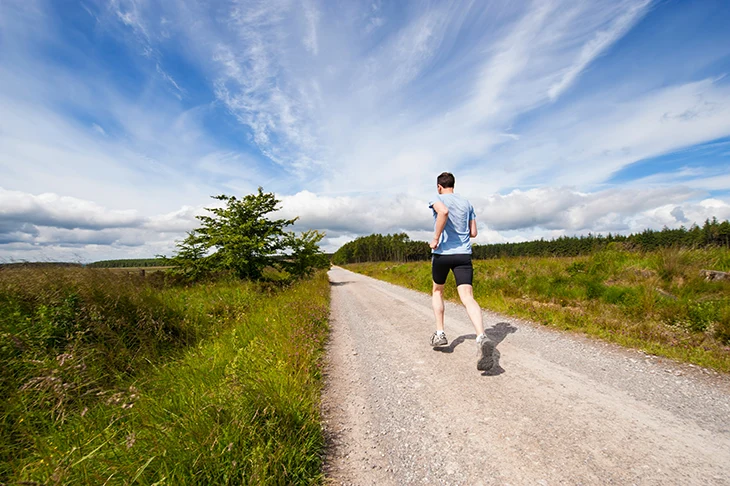- Perspective
The transformative power of movement: A pathway to mental wellness.
Maintaining good mental health is often side-lined in our fast-paced world, where deadlines loom significantly and stress levels soar. Depression and anxiety have become all too common, affecting millions worldwide. However, amidst this turbulence, a simple yet powerful remedy exists. Movement. Physical activity isn’t just about sculpting bodies but nurturing minds.

This week is Mental Health Awareness Week, with an emphasis on movement. Our Marketing & Partnership Development Director, James Tomlinson, looks at how movement at work and home can help alleviate mental health pressures.
The link between movement and mental health.
Research consistently highlights the connection between movement and mental well-being. Physical activity triggers the release of endorphins, neurotransmitters known for their mood-lifting properties. These natural mood boosters can alleviate symptoms of depression and anxiety, promoting a sense of well-being. Regular exercise, such as running, fosters better sleep patterns, crucial for maintaining mental health.
Quality sleep rejuvenates the mind, enhancing cognitive function and emotional resilience. Additionally, physical activity reduces levels of stress hormones like cortisol, reducing the negative impact of chronic stress on mental health. In essence, movement acts as a potent antidote to the effects of depression and anxiety. Its benefits extend beyond physical fitness, offering a holistic approach to mental wellness.

Small steps lead to lasting fitness habits.
Embracing a more active lifestyle doesn’t require a complete overhaul of your routine; small, consistent changes often yield the most significant results. The trick is to start small and begin by setting achievable goals for yourself, whether taking a ten-minute walk during your lunch break or practising yoga for fifteen minutes before bed. Building consistency is critical, so gradually incorporate movement into your daily routine.
Finding activities you genuinely enjoy is the key to sticking with an exercise routine. Whether mountain biking, swimming, or walking, choose activities that bring you joy and fulfilment. This will make it easier to stay motivated and engaged. Physical activity should be treated as a non-negotiable aspect of our daily routine, prioritising it alongside work, family, and other commitments. Schedule regular exercise sessions into your calendar and honour them like any other necessary appointment.
Integrate movement into the workplace.
Many people spend most of their waking hours at work, so the workplace presents a prime opportunity to incorporate movement into our daily routines. It could be as simple as taking a meeting outdoors, breaking the confines of the office environment. Or exploring the use of standing desks or adjustable workstations. Alternating between sitting and standing throughout the day reduces the risk of sedentary-related health issues and promotes better posture and increased energy levels.

Remember, every step counts.
In a world where the pace of life seems to accelerate with each passing day, prioritising our mental health has never been more crucial. By embracing the transformative power of movement, we can nurture our minds, uplift our spirits, and cultivate a greater sense of resilience in life’s challenges.
Whether it’s a brisk walk in nature, a heart-pounding workout at the gym, or a gentle yoga flow in the comfort of your home, let movement be your compass on the journey to greater mental wellness. As you lace up your trainers, roll out your yoga mat, or step outside and breathe in the fresh air, remember that every step you take is a testament to your commitment to self-care and self-discovery.
By honouring our bodies, nurturing our minds, and connecting with the world around us through movement, we can unlock a reservoir of strength, resilience, and joy within each of us. So, take that first step, and let the transformative journey begin.
